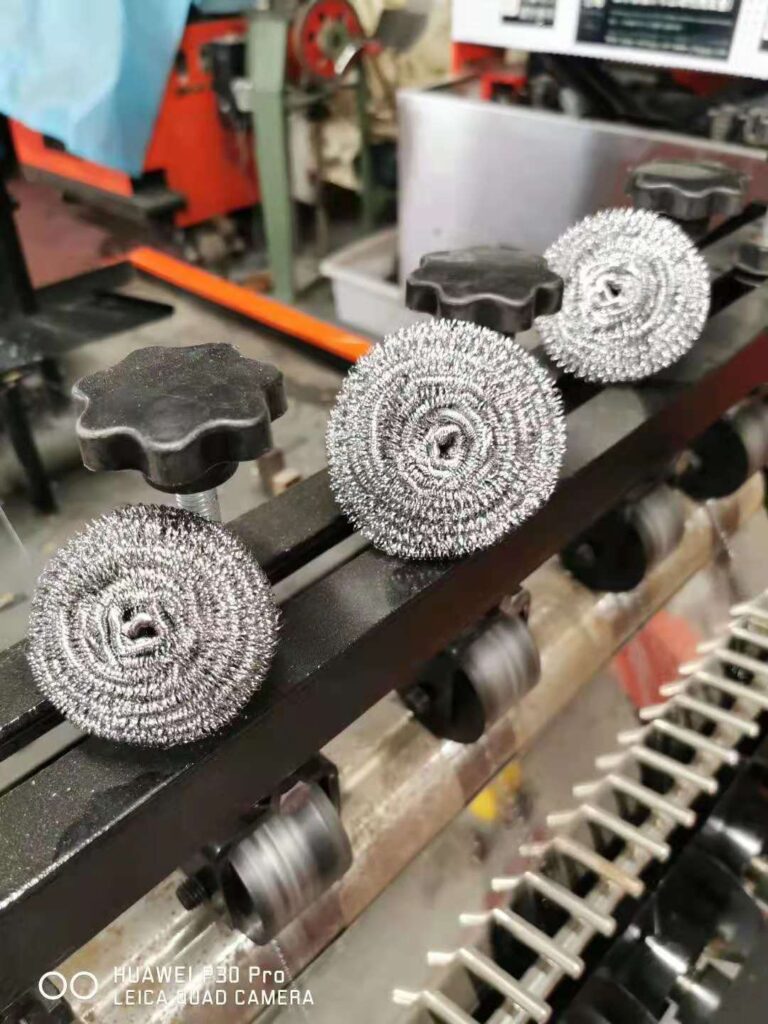Abstract:
Steel ball is a commonly used cleaning tool, but some people worry that the steel ball is easy to rust or deformation, which affects its cleaning effect and service life. This paper discusses whether the steel ball is easy to rust or deform through comprehensive analysis of the material characteristics, service conditions and maintenance methods of the steel ball. Studies have shown that rational use and maintenance of steel wire balls can extend their service life and reduce the risk of rust and deformation. Choosing high quality steel balls, avoiding the use of overly corrosive cleaners, and regularly cleaning and drying steel balls are key to maintaining their performance and appearance.

Introduction:
Wire balls are a common cleaning tool used to remove dirt from POTS and pans, kitchen equipment, and other metal surfaces. However, some people worry that the steel ball is easy to rust or deformation, affecting its cleaning effect and service life. Understanding the material characteristics, use conditions and maintenance methods of steel wire balls is of great significance for eliminating people’s doubts and correctly selecting and using steel wire balls.
Material characteristics of steel ball:
Steel balls are usually made of stainless steel, an alloy that is resistant to corrosion, high temperature and oxidation. The chromium element in the stainless steel forms a dense oxide film that protects the surface of the steel ball from corrosion. In addition, the material of the steel ball should have a certain strength and toughness to ensure that it can maintain its shape and performance during the cleaning process.
The effect of the conditions of use on the steel ball:
The risk of rust and deformation of steel wire balls is closely related to the conditions of use. In the process of use, if the steel ball is exposed to a humid environment for a long time, or in contact with overly corrosive cleaners, it may lead to the damage of the oxide film, thereby accelerating the occurrence of rust. In addition, excessive use of force, frequent folding and bending of the steel ball can also cause its deformation.
The impact of maintenance methods on steel balls:
Proper maintenance can extend the service life of the steel ball and reduce the risk of rust and deformation. Here are some maintenance suggestions:
Avoid long-term wetting: Rinse and thoroughly dry the steel ball in time after use to avoid bacterial growth in a humid environment.
Choose the right cleaner: Avoid using overly corrosive cleaners, choose a cleaner compatible with the material of the steel ball.
Regular inspection and cleaning: Regularly check the integrity and wear of the steel ball, if necessary, clean with detergent to remove attachments.
Moderate use of force: When using the steel ball, moderate use of force to avoid excessive force caused by deformation.
Comprehensive analysis of research and practice:
Through the comprehensive analysis of research and practice, we can draw the following conclusions:
High quality steel wire balls have high corrosion resistance and wear resistance, which can extend the service life.
The reasonable use of cleaning agents and the avoidance of overly corrosive substances can help reduce the risk of steel ball rust.
Regular inspection and cleaning of the steel wire ball can prevent the accumulation of dirt and deformation caused by wear.
Moderate use of force and avoiding excessive bending of the steel ball can maintain its shape and performance.
Conclusion:
The comprehensive analysis shows that the steel ball is not easy to rust or deformation under normal conditions of use, but the rational use and maintenance of the steel ball is still the key to maintain its performance and appearance. Choosing high quality steel balls, avoiding overly corrosive cleaners, regularly cleaning and drying steel balls, and moderate use of force are effective ways to reduce the risk of rust and deformation.

